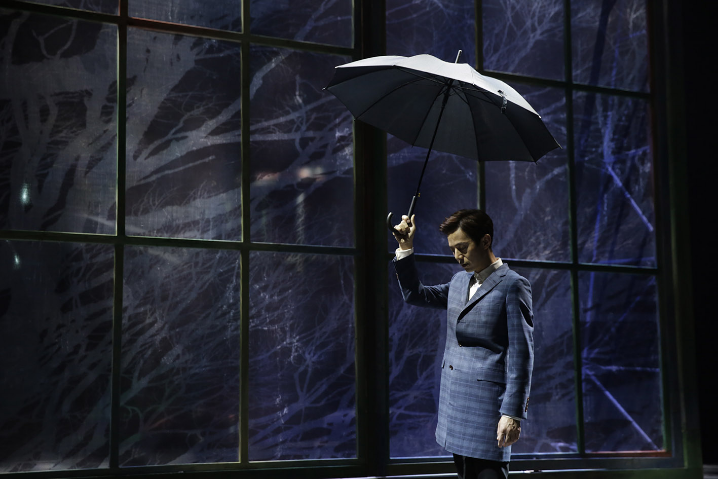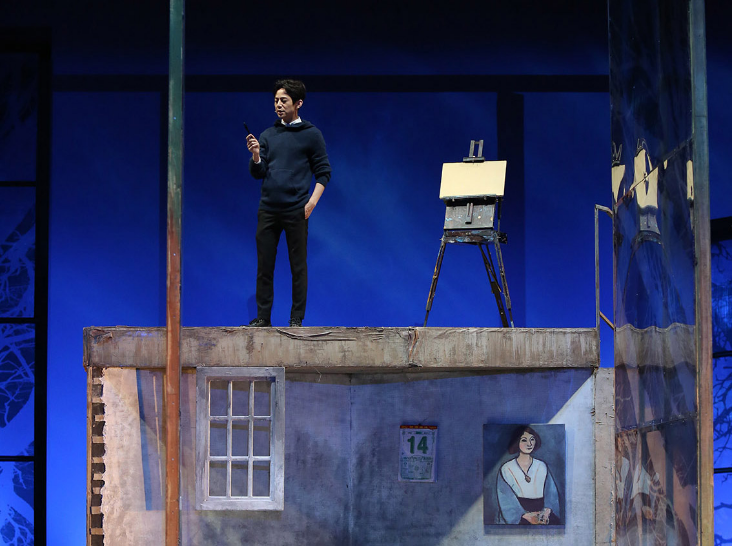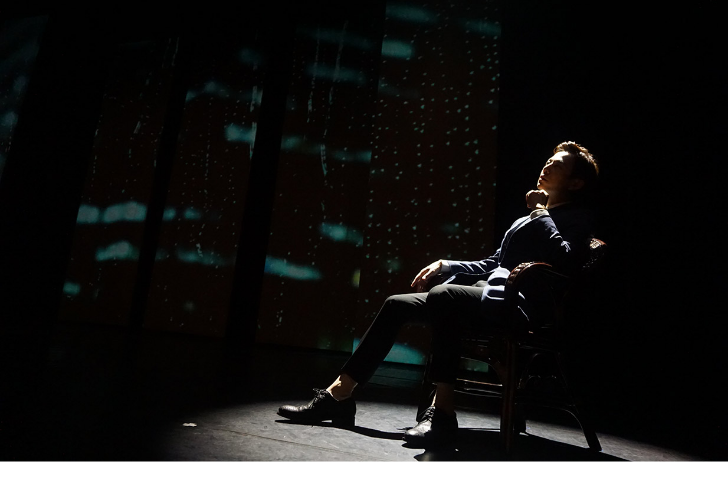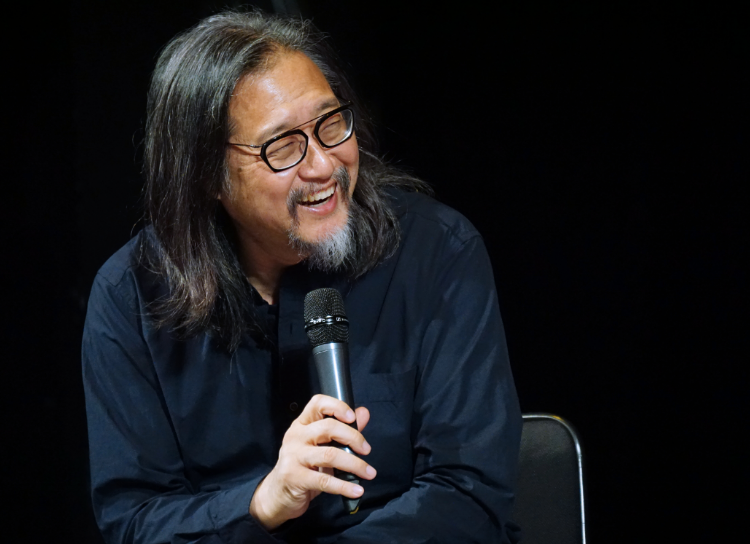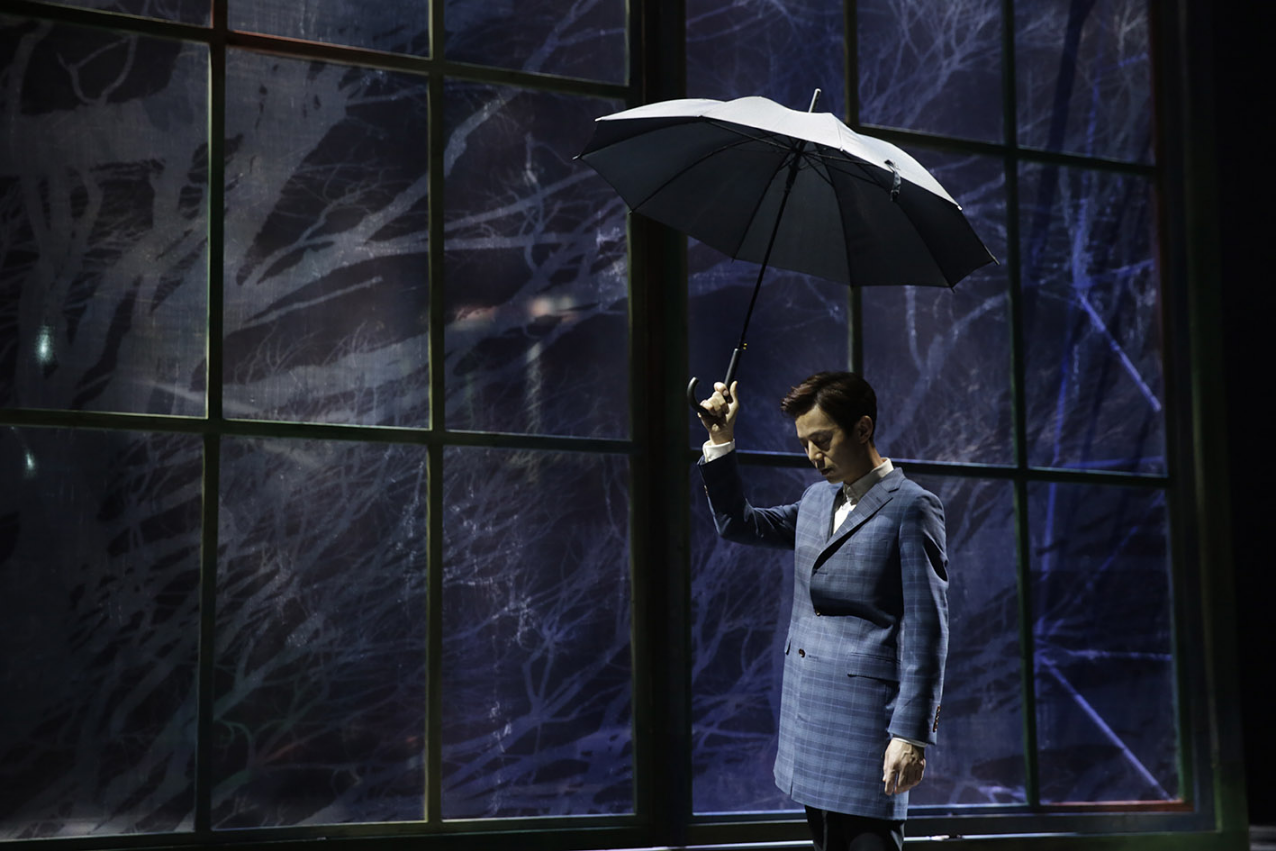
Writing in Water
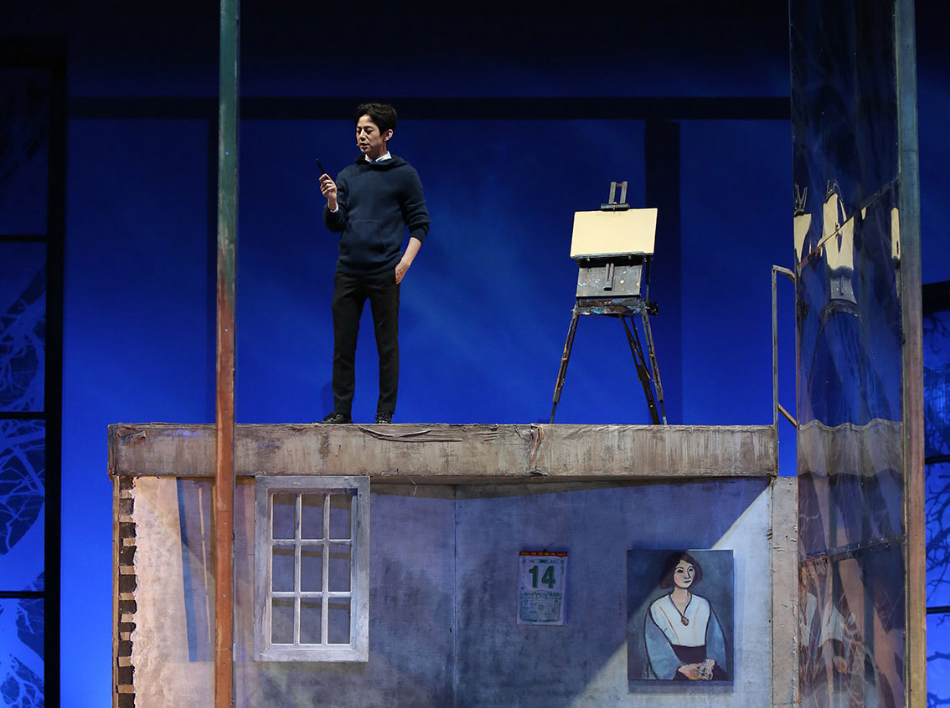
Award-winning director and playwright Stan Lai is returning to CCM with Writing in Water, a much acclaimed piece premiered in Hong Kong, and later toured around numerous cities in our region. What follows is a brief personal account of what inspired him to write and direct a masterpiece praised both in the Chinese-speaking world and internationally.
At the time I had just finished two monumental works back to back. There was Light Years in Beijing, a piece chronicling 30 years of social evolution in China, through the eyes of a TV set. And there was The Village, in Taipei [presented at CCM in 2011], which centered around three generations of migrants from mainland China in Taiwan in the past fifty years. Spanning decades and telling complex life stories populated by a wide variety of characters, both plays were epic and vast. To be frank, I arrived in Hong Kong feeling like my mind was empty after those two endeavors. To walk into the rehearsal room with hardly any ideas for a new play, that was a first to me, for I often come into the first rehearsal with a clear vision and a well-developed outline.
As always, I was inspired by my surroundings. I remember walking to Central from Sheung Wan on the lunch break of the first rehearsal day. It was the time of the economic crisis and everywhere I looked I saw unhappy faces. I had been translating Happiness by Matthieu Ricard, who in his book defined various levels of happiness and shed light on why people in the modern age were dissatisfied with their lives. I remember walking in Central and feeling as though I had stepped into a surrealistic dream, or a nightmare from an expressionist painting, in which everyone’s unhappiness was manifested like in Munch’s The Scream and projected all over the skies above Hong Kong. No one smiled or even talked. People were just moving around soundlessly in their own painful existence. It hit me that I was walking through a kind of hell, or perhaps, the unhappiest place on Earth. So I decided to create a play about happiness.
Meanwhile, I read about an Austrian man who kept his family locked in a basement for twenty years. The atrocities pained my heart and made me livid with rage.
However, feeling angry is far too inadequate for a playwright. A playwright seeks to uncover truths. Behind the violence, could there be love, by any chance? A feeling rendered impossible to be called love by its twisted nature? It is no news that human beings use violence and hurt others in the name of love. But is there a commonly accepted definition of happiness, of affection?
I brought these thoughts into rehearsal and a story soon emerged. It was a tale about the encounter between a “Happyology” teacher (something I invented on the spot) and his mother whom he had never met. Telling this story was my way of “translating,” as a playwright, the terrifying news I was reading about. While Writing in Water received critical acclaim after it premiered in Hong Kong in March 2009 and in Taipei in 2010 (under the name Happiness Lessons), to me it seemed something was missing.
Writing in Water was seven years in the making. In early 2009, I was invited by the Hong Kong Repertory Theatre to share my special method of creating theatre works with them, working with a group of young, talented actors. No specific topic or form was given; everything was up to me. The only thing that was set was the date of the premiere.

Then, with He Jiong joining the cast, I was able to look at the play’s structure with fresh eyes. After a rigorous process of rewriting, during which I made many changes, with characters deleted or transformed, voilà, Writing in Water finally felt complete.
As always, it is wonderful to work with scenic and costume designer Sandra Woodall. With her superb talent and professionalism, she tackled many challenges with grace and made outstanding creative choices.
I was also gratified to work with lighting designer Xiao Lihe again, since we first collaborated on Kuo Pao Kun’s The Spirits Play in 1998. Working alongside an artistic powerhouse like her is always reassuring.
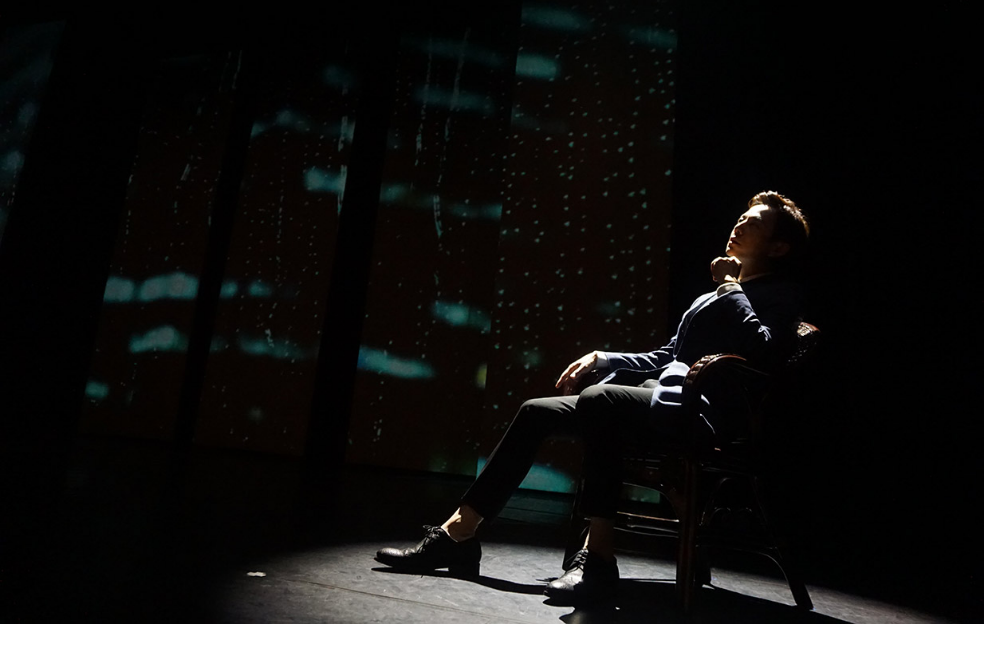
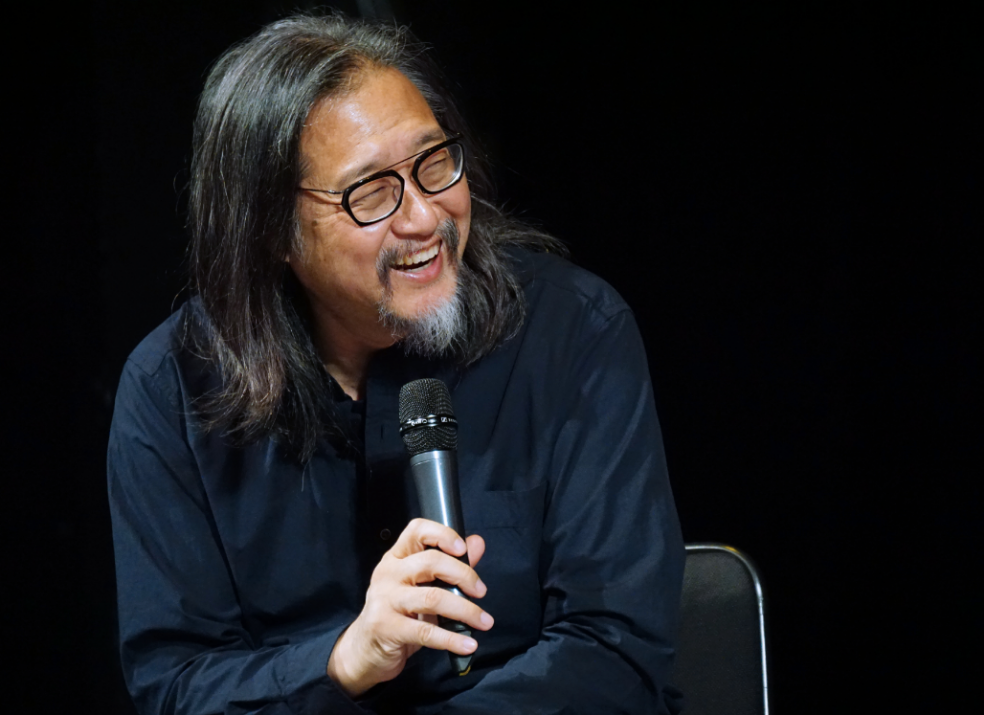
One of the most celebrated voices in the contemporary Chinese theatre, Stan Lai is regarded by the BBC as “the best Chinese language playwright and director in the world” while Asia Weekly publication described him as “Asia’s leading theatre director”. The theatre master is the Artistic Director of the Performance Workshop in Taipei, the Theatre Above in Shanghai and co-founder and director of Wuzhen’s Theatre Festival.
Dramaturgo/ Encenador
Having produced an extensive repertoire of more than 40 original works, Lai created pieces like Secret Love in Peach Blossom Land, dubbed as the masterpiece of contemporary Chinese theatre, the moving, dramatic comedy The Village (both staged at CCM), besides A Dream Like a Dream, an epic eight-hour play. His works are regularly performed all over China and the Chinese speaking world, as well as in the West. Pieces like Secret Love in Peach Blossom Land, staged at the Oregon Shakespeare Festival in 2015, or the immersive Nightwalk in the Chinese Garden, presented at the Huntington Library and Gardens in Los Angeles in 2018, have been unanimously acclaimed by audiences and critics alike.
Also an acclaimed film writer and director, Lai has been distinguished with top prizes at the Tokyo, Berlin, and Singapore international film festivals, having held the positions of opera and event director at the Deaflympics Opening Ceremony in 2009.
Holder of a PhD in Dramatic Art from UC Berkeley, Lai has taught extensively at the Taipei University of the Arts, and both Berkeley and Stanford’s prestigious universities.
Among all the characters I gave life to in my plays, perhaps Shui’er is the most special. In a sense, she is not unlike Miranda in Shakespeare’s The Tempest. She finds herself in a “brave new world,” yet she is confined within the hard-cold walls of reality. I feel sadness every time I think of her. Where is the origin of the world’s good and evil? What breeds violence? What defines love, joy and happiness? I dedicate this play to all those who are unhappy. May they find true happiness.
I would like to thank He Jiong again for such a wonderful journey. A seasoned stage veteran who, since 2006, has left his mark on Secret Love in Peach Blossom Land [presented at CCM in a decade ago], his devotion and insight made it possible for Writing in Water to be what it is.
